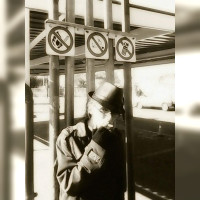If there’s anything writers struggle with even more than beginnings, it is endings. Imagine you’ve captured your reader’s attention, kept her following you for the entire journey, and now all of your hard work comes down to one final scene that will make or break her reading experience. Yikes!
Here are some tips on approaching your story’s ending.
What’s in an Ending?
Good endings make sense; evoke emotion like contentment, anger, sadness, or curiosity; shift the reader’s perspective; or open her mind to new ideas. They do not confuse or cast the whole story as a hoax. Good endings bring the hero—and, more importantly, the reader—to some kind of destination (even if it’s a trap).
Good endings highlight for us how the protagonist has changed from the beginning of the book. If the protagonist is the same person as he or she was in the beginning, then the story is lacking a crucial dimension of character development.
Some Ending Types
- The Straight-Up Ending. The journey is over, the hero has completed his quest. He has learned what he needed to learn and is now moving on. This ending can be happy, sad, or something in between. This is also sometimes referred to as the “linear” ending. Many dramas, adventures, and romance stories end with a straight-up ending.
- The Cliffhanger. Cliffhanger endings, as their name suggests, leave the hero dangling in the jaws of some unsolved danger. These are often seen on TV and movies and are used often at the ends of a chapter, though the Goosebumps books, if anyone remembers, are good examples. Open endings, the ones where the hero’s true fate is left to the reader’s imagination, can also be argued to fall under this classification.
- The Shocker. These endings leave the reader thinking, “Oh, Gods, no way!” They are created by introducing a final twist to the plot, one that transforms the reader’s understanding of the events of the story so far. Horror, crime, and thrillers make use of these endings a lot, and if you’re looking for great examples, look no further than the fiction of Roald Dahl.
- The Philosopher. Occasionally, a story ends with an invitation to wonder and keep exploring its themes. The hero’s journey concludes, but not quite: the reader is still left to wonder about the hero’s fate, though not always in a cliffhanger or shocker sense. I call this type of ending the Philosopher.
- The Terrible Ending. Avoid the Terrible Ending. Unless done exceptionally well, these include stories where (1) the protagonist was really crazy all along, or (2) it was really all a dream/hallucination.
Tips for Writing Your Story’s Ending
Wrapping up loose ends. I’ve already said that endings wrap up a hero’s journey, but don’t forget to wrap up any other loose ends lying around. Endings are also the place to make sure that any plot holes left open and characters left unaccounted for are explained – it’s not something you want to discover after publication.
Test readers matter. Where possible, always have a brutally honest beta-reader on your side. They can tell you if your ending brings the story to the right kind of conclusion. There’s nobody better than an honest reader to tell you if your ending is obvious or downright terrible.
Writing the ending first. You’ll get to the end a lot quicker if you know where you’re going. Write, or at least outline, a story’s ending before you start working on the story. Bad endings are often bad endings because they were written on the spot as “filler,” with the writer having no idea what they were building up to.
Writing several endings. Write several options for your story’s end, each with the hero ending up in a different situation. Happy, sad, conclusive or not – eventually you’ll find that the right one falls into place.
Researching different endings. Take a bunch of books and read only the first and last scenes. The worst thing that can happen is a couple o’ spoilers, I promise! Research which endings work and which of them don’t.
The last line matters. The last line holds a lot of the punch, and in a lot of cases it’s what sticks. Take a look at some of these last lines and compare them to your own personal favorites…
Famous Last Lines
Take a look at these last lines. Did they work? Why?
“‘Why don’t you cover her up, Mabel?’ he said. ‘We don’t want our little queen to catch a cold.'”
– “Royal Jelly” (from Kiss, Kiss), Roald Dahl
“Amen. And all that, cal.”
– A Clockwork Orange, Anthony Burgess
“Whatever our struggles and triumphs, however we may suffer them, all too soon they bleed into a wash, just like watery ink on paper.”
– Memoirs of a Geisha, Arthur Golden
“Don’t ever tell anybody anything. If you do, you start missing everybody.”
– The Catcher in the Rye, J.D. Salinger
“The creatures outside looked from pig to man, and from man to pig, and from pig to man again; but already it was impossible to say which was which.”
– Animal Farm, George Orwell
“He loved Big Brother.”
– 1984, George Orwell
“The old man was dreaming about the lions.”
– The Old Man and the Sea, Ernest Hemingway
“The scar had not pained Harry for nineteen years. All was well.”
Harry Potter and the Deathly Hallows, J.K. Rowling




